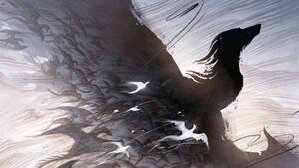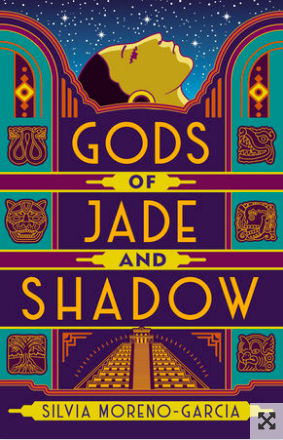The Queen of Sorrow, the conclusion of Sarah Beth Durst’s The Queens of Renthia trilogy, expands the amazing fantasy world of Renthia and answers a host of questions about the rules that govern it.
Throughout the series, Durst’s focus has been on the creative force with a specifically female frame of reference. Renthia is a world created by a female deity, and the characters of the story live in a true matriarchy, one that includes and respects men as a vital element but is not built in reaction to, or anger at, a patriarchy. This distinction is remarkable. When you are born and raised as a fish, it is difficult to describe a life on land with out constantly referring to the lack of water. There are multitudes of speculative works that imagine a world run by women, but usually, as in Y: The Last Man, it is a world where men are absent and the rule of women is drawn in reaction to the patriarchy.
This is not the pattern in the world Durst has created. In Renthia, men and women live together, but only women have ever had the power to connect with and direct the wild natural spirits that live in the land. The spirits are elemental, natural; their powers are both creative and destructive. Without a queen’s control they will run amok and the world will devolve into primordial chaos. There is no room for a battle of the sexes when life depends on the power of a woman to hold chaos at bay. Survival is an ever-present imperative, and men do all they can to keep the right women in power.
There is only one creative deity, the Great Mother, who has been alluded to in the first two books. However, she is always distant, absent. She is a god who got things started, then left, and in this final book of the series we learn why.
Each of the first two books in Durst’s trilogy introduced a woman who would become queen of Renthia. In The Queen of Blood, we met Daleina, who replaces a corrupt queen. Daleina’s coronation becomes a blood bath as the spirits challenge the power of human control. In The Reluctant Queen we met Naelin, a woman who had denied her power, thinking that by repressing it she could choose a quiet life.
The nemesis of both queens is Mercot, a woman consumed with ambition and hubris. In the first book, she and Daleina meet in the special school for gifted youngsters and immediately become rivals in the mold of Harry Potter and Draco Malfoy. When Mercot gets expelled for cheating, she leaves with a flip of her hair and a roll of her eyes, only to reappear in book two as the ruler of the next kingdom over. Intent on taking over Renthia, she attempts to kill Daleina.
In The Queen of Sorrow, Mercot tries once again to take Renthia, this time by sending spirits to kidnap, and possibly kill, Naelin’s children. The emotional connection Naelin has with the spirits of Renthia is so profound that the entire kingdom is overtaken by the storm of their queen’s grief and fury when she believes her children dead.
At first we believe Mercot is ambitious to the point of being a sociopath. Her choices would seem to give Machiavelli pause. Or so it appears until we enter her kingdom and understand her true situation. The kingdom Mercot rules has an extra helping of spirits. The mountainous land heaves and boils. Mercot is hubristic, but she is also the queen with the most raw talent. In her kingdom of landslides and earthquakes even she can barely hold back the chaos.
Why are there untamed lands? Up to this point in the stories I had assumed that the spirits in the untamed lands were getting along just fine, but it turns out they are not. In answering these questions, Durst expands her world to a universe complete with a fully realized, compelling, and terrifying cosmology. There are more lands, more queens. More importantly, there is a reason why the spirits run amok without a queen—and there is a reason why women are the only ones who can bring those spirits under control. This expanded cosmos, together with Naelin’s deeply emotional journey as she deals with the disappearance of her children, makes The Queen of Sorrow by far the most compelling novel of the series.
In the end, I found myself wishing that some of the cosmic truths revealed in the final book had been given more play earlier in the series. But perhaps that was not possible, given the author’s ambitious vision for the series. Right from the start, The Queen of Blood challenged innumerable fantasy tropes, playing with expectations of female characters, chosen ones, female self-doubt, and posing the question of whether ambitious, confident women could be good rulers, or rulers at all. The Reluctant Queen took these questions further and continued to subvert tropes and expectations. With so much going on in the first two novels, could there have been room for this deep and richly imagined cosmos as well? I’m not sure. But now that I know the truth, I want to go back and re-read the other novels. Durst has truly created a whole new world.

































Cadwell Turnbull's new novel — the first in a trilogy — imagines the hard, uncertain work of a fantastical justice.